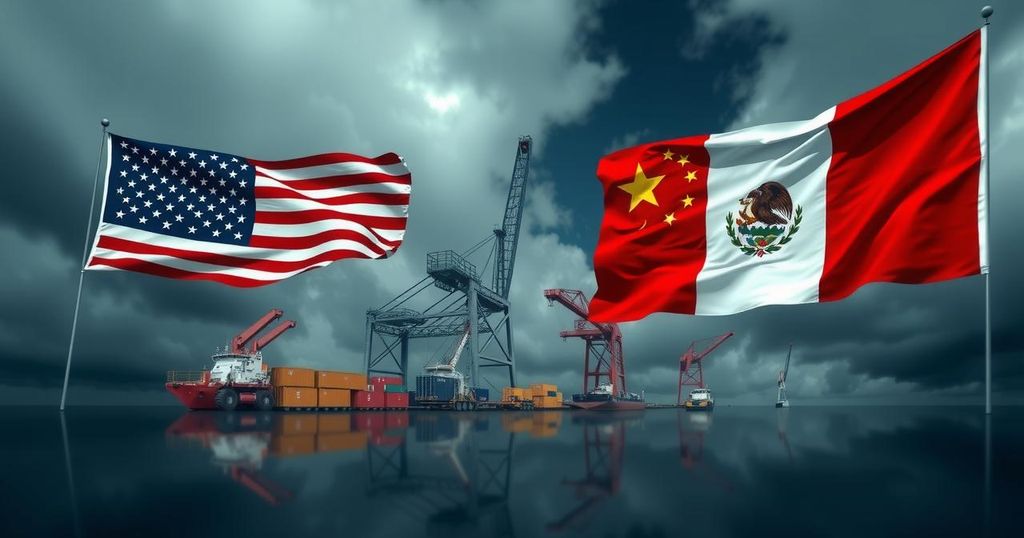World news
AMERICA, ASIA, ASSOCIATED PRESS, BIDEN ADMINISTRATION, CANADA, CHINA, DONALD TRUMP, ENFORCEMENT AGENCY, MEXICO, NATIONAL SECURITY, NEWSWEEK, NORTH AMERICA, PHILIPPINES, POLITICS, REUTERS, TRADE RELATIONS, TRUMP, TRUMP ADMINISTRATION, TRUTH SOCIAL, U. S, U. S. CENSUS BUREAU, U. S. DRUG ENFORCEMENT AGENCY, UNITED STATES, UNITED STATES OF AMERICA, WHITE HOUSE
Marcus Chen
0 Comments
Trump Proposes Increased Tariffs to Combat Drug Trafficking and Illegal Immigration
President-elect Donald Trump has announced plans to impose a 10% tariff on Chinese imports and a 25% tariff on goods from Canada and Mexico starting January 20th, pending action on drug trafficking and illegal immigration. These tariffs are part of Trump’s American First strategy and aim to leverage economic pressure on foreign nations. Investors like Bill Ackman commented on the implications of using tariffs to influence foreign policy.
President-elect Donald Trump announced plans to impose higher tariffs on imports from China, Canada, and Mexico, highlighting U.S. concerns over drug trafficking and illegal immigration. He stated that, starting January 20th, he would implement a 10% tariff on Chinese products and a 25% tariff on goods from Canada and Mexico until these countries address the issues of fentanyl trafficking and unauthorized immigration into the U.S. Trump emphasized the need for immediate action to combat drug-related issues arising from these nations, stating that he had previously engaged in discussions with China regarding the flow of drugs into the United States. The tariffs are part of his broader strategy to fulfill his America First agenda, as he seeks to leverage economic measures to enforce political and social changes. Notably, Trump had previously suggested a much broader 60% tariff on Chinese goods if necessary.
Billionaire investor Bill Ackman commented on Trump’s announcement, noting that the tariffs would not be lifted until the required changes occur in Mexico and Canada, framing this policy as a tactical approach to influence foreign policy. The implications of these tariffs could be significant, given that U.S. imports reached approximately $4 trillion last year, with a substantial portion sourced from the targeted countries, particularly China, which accounted for $433 billion in imports.
The announcement of higher tariffs reflects ongoing tensions between the United States and its trade partners, particularly China, Canada, and Mexico. The initiative is primarily driven by concerns over drug trafficking, particularly fentanyl, which originates from these countries and significantly impacts U.S. public health and safety. President-elect Trump’s approach aligns with his America First policy, promoting the idea that economic tools can be utilized to promote national interests and enhance border security. This stance is part of a larger narrative during his election campaign, where he emphasized the need for stricter immigration policies and trade negotiations that benefit American workers.
In summary, President-elect Trump’s proposal to raise tariffs on imports from China, Canada, and Mexico underscores his administration’s commitment to addressing drug trafficking and immigration issues. As he prepares to take office, the implementation of these tariffs aims to leverage economic pressure to secure cooperation from these nations regarding drug control and immigration enforcement. The approach aligns with his campaign promises and represents a significant shift in U.S. trade policy, emphasizing the intersection of economics and national security.
Original Source: www.newsweek.com




Post Comment